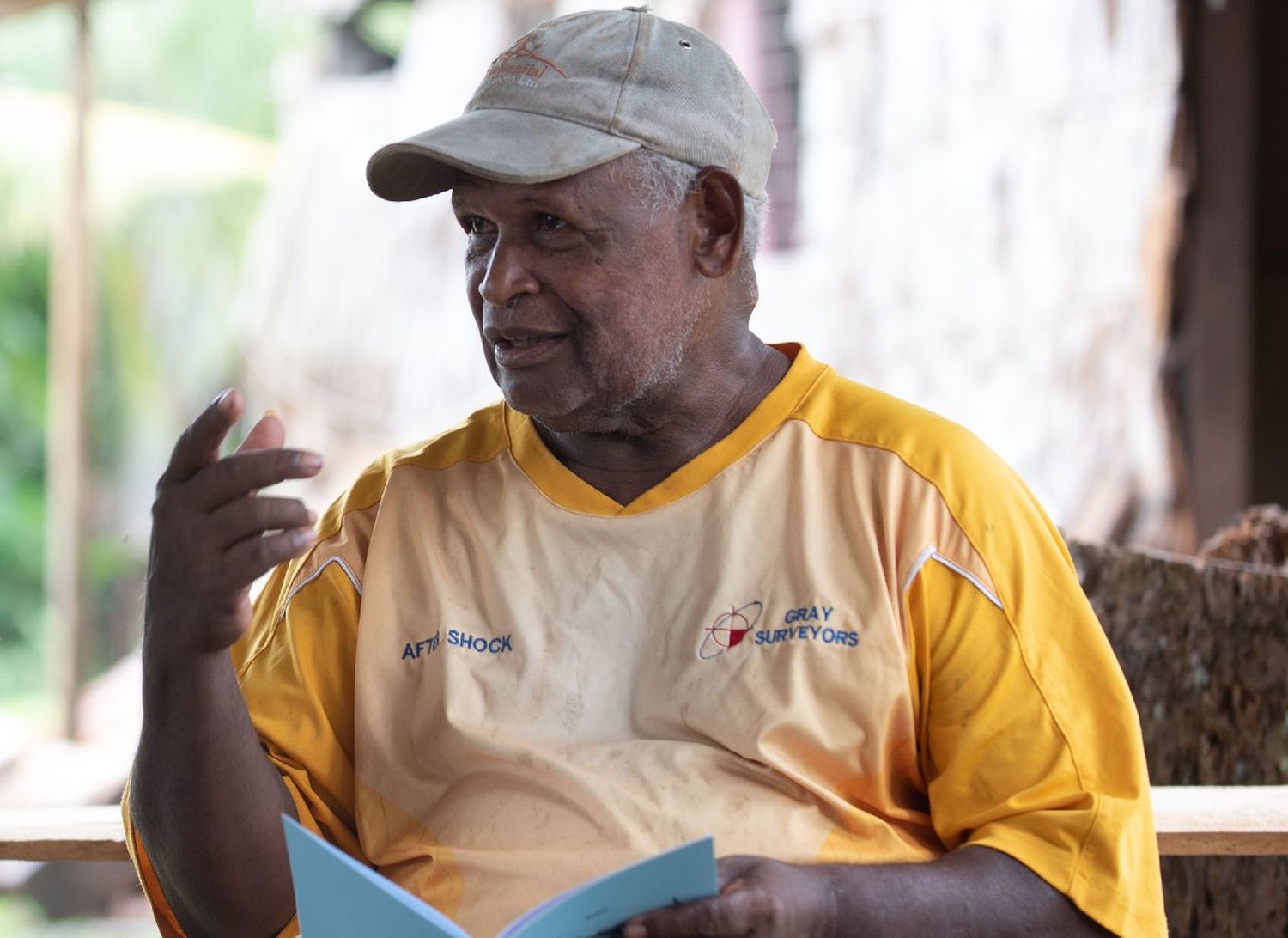The Malango people of the Solomon Islands are an example of why, even when a group is predominantly Christian, engaging with God’s Word in their own language radically deepens their relationship with Him.
To prepare for Bible translation, the Malango people formed a translation committee in 2013 to set fundraising goals and determine priorities. They kicked off the project by compiling Malango words in a series of dictionary workshops. Besides helping to establish a consistent written form for their language, the dictionary served as an invaluable resource for translators and bolstered pride in their language and culture.
Aided by interested community members, the team collected thousands of words, which Andrew added to a database on his laptop. Once the Malango had agreed on an orthography (writing system), they were ready to begin translation.
Diving In
In 2017, four Malango men—Ezra, Genesis, Andrew and Lino—were chosen by their church communities to translate Scripture. They began by translating the books of Jonah and Ruth because they are short and could be completed fairly quickly.
Ezra, now 68, worked on Jonah.
“Ezra took that really seriously,” says Andrew Van Andel. “He probably redrafted it about seven or eight times—all hand-written.”
Ezra says he feels called to help provide God’s Word for his people, despite his advanced years.
“I know that one day I’ll get weaker and . . . I won’t be able to help. But while I’m still strong and I can be part of this work, I’ll be there.”
Relating to Ruth
The Malango translators Lino and Andrew settled into a routine of alternately meeting in each other’s village to work on the book of Ruth. Before long, people in their communities took notice and, without prompting from either of them, began to bring food and other provisions. Many would then sit close to the two men while they worked on the translation, offering suggestions that often resulted in some good debate and discussion.
“Most of them . . . didn’t know about the story of Ruth,” says Andrew Van Andel, “or that she was a real person who went through so many struggles. And the two translators said to me, ‘She was an incredible woman, wasn’t she?’
“They had probably been churchgoers all their lives, but hadn’t necessarily interacted with the Word of God at a deep level until they began translating it.”
Growing Unity
The dictionary compiled by the project team has since swelled to about 5,000 words. Jonah and Ruth have been translated, while Genesis has nearly finished translating Luke. So far, Jonah, Ruth and Luke 2 (the Christmas Story) have been checked by a translation consultant, printed and distributed to the Malango communities.
Bible translation is fostering increased unity between the two main denominations involved, the South Sea Evangelical Church and the Catholic Church. Prior to them both assigning two of their members to serve as translators, the denominations had never worked together.
“They told me this was something they would never do on their own,” Andrew says, “and it has been a rewarding experience for them to work together.”
